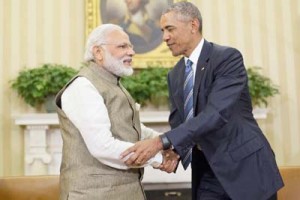 Mohammad Jamil
Mohammad Jamil
mjamil1938@hotmail.com
Despite the fact that Pakistan itself is suffering from the economic fallout of ongoing war on terror, Pakistan is the largest Muslim donor country to Afghanistan, which is reflective of Pakistan’s desire for development and peace in Afghanistan. Pakistan has, so far, spent over $385 million for the development, education and infrastructure-building in Afghanistan. Present Government has added over $500 million more to this list for development in Afghanistan, as peace and prosperity of Afghanistan is an indispensable condition for peace and development in Pakistan. It is a matter of record that Pakistan rendered many sacrifices when it stood by the Afghans in Afghan Jihad against the former USSR and hosted record number of over 3 million refugees. Afghan citizens are allowed to avail medical and education facilities in Pakistan at par with the Pakistani Citizens.
Pakistan has funded different educational institutions inside Afghanistan such as Allama Iqbal Faculty of Arts-Kabul University, Sir Syed Post Graduate Faculty of Sciences-Nangarhar University, Liaquat Ali Khan Engineering University-Bulkh, Rahman Baba School-Kabul and Rahman Baba Hostel in Kabul. Pakistan has helped Afghan government in developmental projects and roads infrastructure in Afghanistan. The construction of roads include 75 kilometers Torkham-Jalalabad road, additional carriage way on Torkham-Jalalabad road, three internal roads in Jalalabad, digital radio link between Kabul and Peshawar. In addition, Pakistan has also given around 100 public transport buses and 200 trucks to the government of Afghanistan for the welfare of Afghan public. Yet, President Ashraf Ghani while addressing a joint session of the Afghan parliament on 25th April 2016 strongly condemned the attack in Kabul, which killed at least 64 Afghans and wounded 347 others.
He accused the Haqqani militant group and some Taliban factions of working for the objectives of foreigners. Anyhow, President Ashraf Ghani in his address to the Parliament had said: “There are no good and bad terrorists; all insurgents are terrorists. Pakistan must act like a responsible nation in the fight against terrorism and our stance is fully backed on an international level.” By the same token, Afghan government should also act like a responsible nation and shun this distinction. Mullah Fazlullah of Tehrik-e-Pakistan Taliban (TTP) and his thugs are ensconced in Kunar and Nuristan, and Afghan government did not arrest them despite the promises that they would be arrested and handed over to Pakistan.
It is more than three and a half decades now that Afghan refugees are living in Pakistan, and among them there are criminals who are responsible for deteriorating law and order situation of the country. There is a widespread perception that they have become a security risk, as it is difficult to separate extremist elements who live in the disguise of refugees. It is high time that they are sent back, as nation wants them to leave the country immediately. Since Pakistan joined the war on terror, Pakistan suffered heavily in men and material, yet Afghan government continued to blame Pakistan for any terror act in Afghanistan. Last year, the United Nations High Commissioner for Refugees (UNHCR) had requested Pakistan to review its December 31, 2015 deadline for the repatriation of Afghan refugees from the country. UNHCR chief António Guterres had called on Prime Minister Nawaz Sharif during his visit.
Prime Minister Nawaz Sharif had said: “Pakistan took care of Afghan refugees as a sacred duty and their return with dignity is a priority for the government.” Anyhow, the time has come that international community should focus on repatriation of Afghan refugees to Afghanistan. The US/NATO and Afghan government had entered into a strategic treaty through signing of Bilateral Security Agreement (BSA). In this milieu it should have also been binding on both sides to resolve the issue of millions of Afghan Refugees (ARs). The UN and its subsidiary organizations like UNHCR must come forward to take up the matter with the US, NATO and EU member countries to arrange repatriation of ARs to their homeland. In the overview of 2015 UNHCR country operations profile Afghanistan, it was anticipated that the newly-formed national unity Government would create an enabling environment for sustainable return of Afghan refugees.
Officially, the year 2015 marked the end of the agreement that Pakistan had with Afghanistan and the United Nations High Commission for Refugees (UNHCR). Pakistan Foreign Office had said that it would like that the UNHCR and international community help the Afghan government in creating necessary environment inside Afghanistan so that these people can return. It has to be mentioned that they are depriving local people of jobs and business opportunities, as many of them are in business and are among the richest people in Islamabad and other parts of Pakistan. In the past, Pakistan had repeatedly extended several deadlines it had fixed for the return of the refugees at the request of Kabul and UNHCR. The last deadline had expired in December 2015; however, it extended the deadline till June 2016 on the request of Afghan government and UNHCR.
Pakistan has been trying to help Afghanistan in the peace process, but Afghan governments have been ungrateful in the sense that they always blamed Pakistan for unrest or any terror attack in Afghanistan. In this backdrop, the government should not extend any more date or give a new timeframe, but ask the UNHCR to make arrangements to repatriate the Afghan Refugees immediately. Apart from the refugee problem, movement of Afghan and Pakistani nationals crossing the Torkhum border without documents is fraught, as many terrorist and extremist elements can cause enormous damage not only to Pakistan and Afghanistan but also to the relations between the two friendly countries. Therefore border management is the only way to check movements of undesirable elements.




